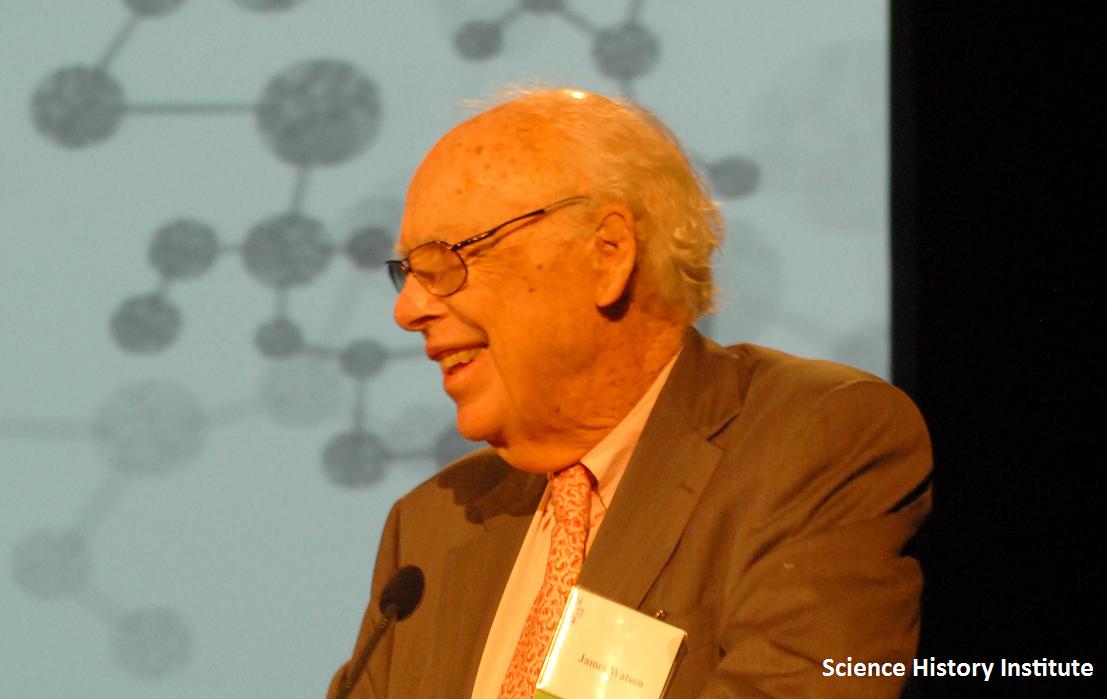24 January 2019
Twist in the Helix
James Watson’s views.
By John Watson
 What on earth are we to make of it? We who are not experts on statistical analysis and prefer to curl up with a good crime thriller than to read the latest treatise on genetics. On one side sits James Watson, Nobel laureate of double helix fame. He repeats the line which he has maintained for some time to the effect that Africans score lower on IQ tests and that the reasons for that are genetic. In the other corner sits the Cold Spring Harbor Laboratory, of which Watson was once President, stripping him of his emeritus positions on the grounds that his views are “unsupported by science”. Are they or aren’t they?
What on earth are we to make of it? We who are not experts on statistical analysis and prefer to curl up with a good crime thriller than to read the latest treatise on genetics. On one side sits James Watson, Nobel laureate of double helix fame. He repeats the line which he has maintained for some time to the effect that Africans score lower on IQ tests and that the reasons for that are genetic. In the other corner sits the Cold Spring Harbor Laboratory, of which Watson was once President, stripping him of his emeritus positions on the grounds that his views are “unsupported by science”. Are they or aren’t they?
For the layman it is very hard to tell. Watson has a history of making rather contentious statements. That may be because he is a blunt scientist who does not care much about public opinion. Or it could be because he is 90 years old and old age can blur judgement. Cold Spring’s position on the other hand is quite convenient for a body which has to raise money from politically correct sources and I certainly would be more comfortable had I seen on their website an analysis of the evidence from which they draw their conclusions.
Still, CSHL is a top research institution so let us assume that the evidence exists and that when they heard Watson’s comments they said: “Dang me the old fool has got it wrong” or some upmarket version of that. They would then have referred the issue to some serious minded ethics committee to decide what should be done. What should that committee have concluded?
The first thing they had to do was to distance the laboratory from Watson’ comments, making it perfectly clear that they did not agree with them. They did that in their statement that “Dr. Watson’s statements are reprehensible, unsupported by science, and in no way represent the views of CSHL, its trustees, faculty, staff, or students.” That is probably a bit of an exaggeration; after all what real life institution can really speak for its students in this way? But that is perhaps forgivable in the anxiety of the laboratory to make its own position clear. OK then, Watson’s views sufficiently distanced. So far, well done, Cold Spring.
But they couldn’t leave it there, could they? Having dealt with the risk of contamination, their second move was to punish. “I know, let’s remove the academic awards which recognise his earlier work” they must have gurgled to themselves happily. In football parlance that is the moment when they begin to play the man rather than the ball because the only possible justification for their action is that there is something unworthy about Watson’s character which makes the retention of honours reflecting his earlier work inappropriate. I don’t suppose that they are great readers of the New Testament down at CSHL and in this case that is a pity. Whether you are a believer or not, it contains a great deal of wisdom and never more so than at Matthew 7 when it tells you not to judge your fellow human beings. That it isn’t just a question of religion and morality, of course, but one of common sense too. The cleverest and best people can go a bit strange in old age and most of us hope that if we say odd things as we get older, our fellows will have the grace to overlook it. Still, these are research scientists, probably a bit down the curve as far as human sensibility goes, so the mistake was made. Perhaps they are getting old too.
It is fashionable these days to suggest that matters be put right by means of an apology but that doesn’t seem to be a very realistic prospect here, so James Watson’s reputation will remain under a cloud. Still, perhaps Cold Spring could act to still any residual doubts the rest of us may have by publishing their analysis of the statistical evidence on this topic. At least we will then know that they acted in good faith.


